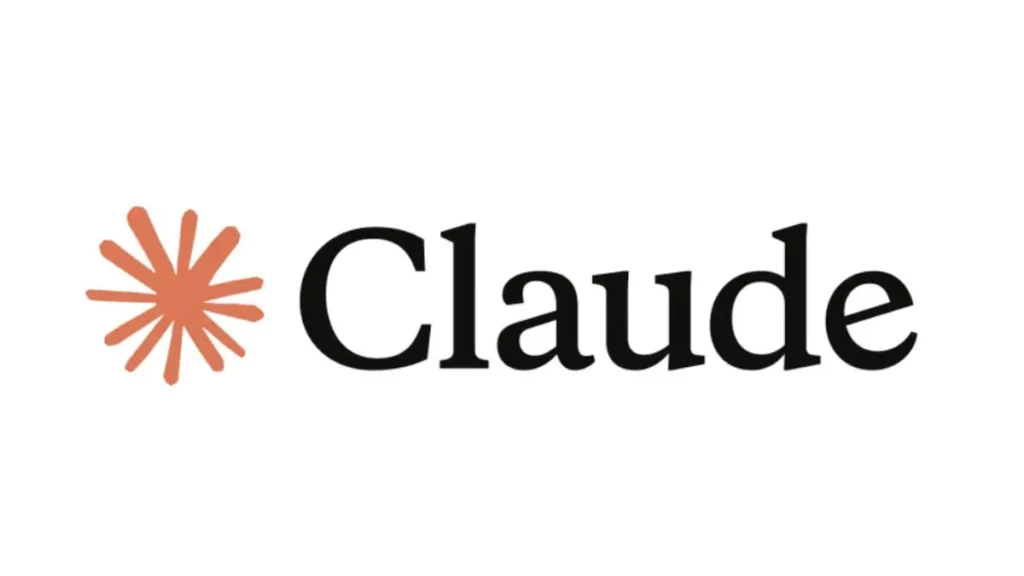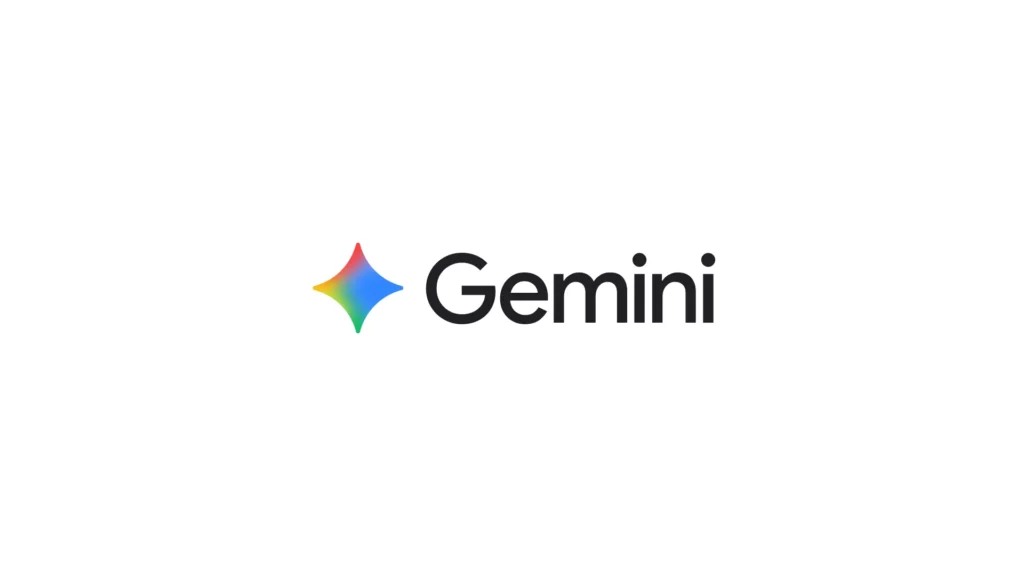Claude vs ChatGPT vs Gemini for coding has become a hot topic among developers looking for the best AI coding assistant. Each model – Anthropic’s Claude, OpenAI’s ChatGPT, and Google DeepMind’s Gemini – brings unique strengths to programming tasks. In this article, we’ll compare their latest versions, including new stats and examples, to see who wins in AI coding support. We’ll cover an overview of each AI, a head-to-head performance comparison (speed, accuracy, debugging, context handling, and more), a real coding example, and a concise pros/cons table. We’ll also discuss other coding AIs and answer FAQs like “Which is better for coding, ChatGPT or Claude or Gemini?” Let’s dive in with a developer-focused analysis.
Overview of Each AI Model

What is Claude? (Anthropic)
Claude is an AI assistant developed by Anthropic (a company founded by former OpenAI researchers). It’s designed with a focus on safe, helpful, and honest dialogue. First introduced in 2022, Claude has rapidly evolved through several versions. Claude 2 launched in mid-2023 with a groundbreaking 100,000-token context window, allowing it to ingest huge code files or documentation.
This was a game-changer for coding tasks, as Claude could read and reason about entire codebases in one go. Anthropic continued improving Claude’s coding abilities – for example, Claude 2 scored 71.2% on a Python coding test (HumanEval), up from 56% in Claude 1.3. By mid-2025, Anthropic unveiled the Claude 4 family (including Claude 4 “Opus” and “Sonnet”), which supports an even larger 200K-token context and an “extended thinking” mode for complex reasoning. Claude’s style is often described as methodical and structured; it tends to produce very detailed, step-by-step solutions and is less likely to skip reasoning steps, making it highly reliable for multi-step coding problems.
Overall, Claude is like a careful senior developer – it may take a bit of time to consider the problem, but it delivers thorough and reliable code solutions. Its large context and safety-focused design (Anthropic’s “Constitutional AI” approach) mean it handles big coding projects and sensitive requests with confidence.

What is ChatGPT? (OpenAI)
ChatGPT is OpenAI’s flagship conversational AI, originally launched in November 2022. It quickly became synonymous with AI assistance for tasks ranging from writing to coding. Under the hood, ChatGPT runs on OpenAI’s GPT series models. Initially powered by GPT-3.5, it gained a major upgrade with GPT-4 in 2023 for ChatGPT Plus subscribers, greatly improving its coding proficiency.
As of 2025, the default ChatGPT model is a multimodal GPT-4 variant (sometimes called GPT-4 “Omni”), and OpenAI has even rolled out GPT-4.5 (codename “Orion”) with incremental improvements. ChatGPT is known for its versatility and human-like conversational style. It can understand and generate text or code, interpret images, and even handle some audio/voice features. A key strength of ChatGPT is its integration with various tools and plugins: for example, it powers GitHub Copilot for code completion and has an “Advanced Data Analysis” mode (formerly Code Interpreter) to run code for you. It supports free usage (with GPT-3.5) and a paid ChatGPT Plus plan (with priority access to GPT-4 and new features).
Developers often praise GPT-4 for producing clean, well-commented code in many languages. ChatGPT also introduced a session memory feature that remembers conversation context very well – it “just gets you,” making personalized suggestions (something rivals are still catching up on). In short, ChatGPT is like a fast, jack-of-all-trades coding buddy: highly accessible, packed with features, and constantly improving its creative problem-solving skills.

What is Gemini? (Google DeepMind)
Gemini is Google’s next-generation AI, developed by the Google DeepMind team. It represents the fusion of Google’s AI research (like the earlier PaLM models and AlphaCode) with DeepMind’s advanced algorithms. Launched in late 2023, Gemini effectively succeeded Google’s Bard as the company’s flagship AI assistant.
It was introduced as a multimodal model capable of understanding text, code, images, and more. Gemini has rapidly iterated: Google released Gemini 1.0 (Ultra) in 2023, then Gemini 1.5 (Pro) in early 2024, and by mid-2025 they reached Gemini 2.5. The latest Gemini 2.5 models come in tiers like Pro and Flash, and boast an unprecedented 1 million-token context window – meaning Gemini can handle entire books or enormous code repositories in one prompt. This long-context capability is a standout feature, enabling tasks like “explain this large codebase” or cross-file code refactoring that other models might struggle with.
Gemini is offered in a free version (often called Gemini Pro or base) and a paid Gemini Advanced subscription for ~$20/month that unlocks the most powerful model (Gemini Ultra). It’s tightly integrated with Google’s ecosystem – developers can use Gemini via Google Cloud’s Vertex AI, and it hooks into Gmail, Google Docs, and other services for seamless workflow. Gemini’s design emphasizes tool use and up-to-date information: it can call Google Search or execute code in a sandbox when needed. In terms of coding style, users often find Gemini’s outputs informationally dense and up-to-date, sticking to best practices. (For example, it often prefers modern coding solutions and explains its reasoning in detail.) Overall, think of Gemini as Google’s AI coding assistant that shines with massive context handling and solid integration, especially if you’re in the Google tech stack.
Performance Comparison of Claude vs ChatGPT vs Gemini for Coding
How do Claude, ChatGPT, and Gemini stack up on real coding tasks? We compare their performance on key aspects that matter to developers: speed, accuracy, debugging help, handling large projects, and the balance of creativity vs reliability.
Speed and Responsiveness in Coding Tasks
When you’re coding with an AI assistant, speed matters – you don’t want to wait ages for an answer or code completion. In terms of raw responsiveness, ChatGPT is generally the fastest of the three. Tests in 2024 showed ChatGPT (GPT-4) was noticeably quicker and more responsive under load, whereas Gemini sometimes lagged a bit when many users were hitting it. ChatGPT’s architecture and OpenAI’s optimizations make it ideal for getting near-instant answers in a live coding session.
Gemini’s speed has improved with each version, but it can still be a tad slower in some cases. One blog noted that Gemini tended to “lag a bit” more than ChatGPT under high-traffic conditions – possibly due to its heavy multimodal model and huge context. Claude’s responsiveness falls somewhere in between. It often gives streaming answers at a reasonable pace, but it might take a moment longer for very complex or sensitive queries since it’s carefully checking itself. In fact, one benchmark found Claude 3.5 had excellent low latency – even faster than GPT-4 Turbo on long outputs – whereas Gemini 1.5 was the slowest in those tests.
This means Claude can be snappy in practice, though it may slow down if asked to produce an extremely large code block (given its detailed, step-by-step approach). In summary, for quick answers ChatGPT leads, Claude is usually not far behind, and Gemini might feel slightly slower on big tasks. The differences are measured in seconds, but for rapid-fire Q&A, that can influence the user experience.
Accuracy in Solving Complex Programming Challenges
Accuracy is crucial – does the AI produce correct and working code for tricky problems? Claude has emerged as a top performer on coding benchmarks. In fact, Anthropic reported that Claude 4 (Opus) scored 72.5% on a software engineering benchmark (SWE-Bench), outperforming both OpenAI and Google’s models in mid-2025. Independent testers also noted Claude 4’s reliability in generating and even self-debugging code over long sessions.
This suggests Claude tends to produce correct solutions for complex tasks and can maintain accuracy over iterative prompts. ChatGPT (GPT-4) is not far behind – it was the leader in many coding benchmarks before Claude 4 came around, and it’s still highly proficient at code generation and explanation.
Gemini has rapidly improved its coding accuracy as well. Google’s internal tests indicate Gemini 2.5 Pro performs at the cutting edge – for instance, on one coding benchmark (LiveCodeBench v6) Gemini achieved about 80% success, whereas OpenAI’s GPT-4 models scored around 70%. This shows Gemini can match or beat ChatGPT on certain programming challenges. Its strength lies in code analysis and large-context problems: Gemini can ingest a whole project and answer questions about it accurately thanks to that 1M token context.
Overall, all three are highly accurate coders, but Claude currently has a slight edge in quality on the hardest problems, with ChatGPT close behind and often more reliable than Gemini for general use. Gemini is catching up fast, sometimes scoring wins in specific tasks, especially when utilizing its broader context.

Debugging and Fixing Code Errors
A big part of coding is debugging – here we consider how each AI helps identify and fix errors. Gemini tends to perform best when you frame debugging as a clear step-by-step task. It’s very good at methodically tracing through code to find logical flaws, uninitialized variables, or state issues when the problem is well-defined. However, it might struggle if the bug description is ambiguous or if the code snippet is incomplete.
In such cases, Gemini’s responses can feel a bit rigid – it may get stuck or need more guidance when the issue isn’t clearly spelled out. ChatGPT, on the other hand, is more flexible and exploratory in debugging. It will engage in a conversation about the bug: asking clarifying questions, proposing hypotheses, even suggesting small patches or code diffs to test ideas. This conversational style means ChatGPT can often zero in on the root cause even with scant information.
For example, if you show ChatGPT an error message with minimal context, it might ask for the relevant code portion or environment details – much like a human rubber-duck debugging session. Claude is also a strong debugging assistant, combining some of these traits. It provides very thorough analyses of what could be wrong, going step-by-step through the code. Claude is less likely to hallucinate a crazy answer; instead it carefully explains why a bug occurs.
In summary, ChatGPT is arguably the most adaptable debugger (great for quick, interactive troubleshooting of even poorly-described issues). Gemini is very effective for straightforward debugging tasks where you give it a clear problem – it will stick to the script and fix standard errors reliably. Claude offers a balance: extremely in-depth debugging help and the ability to maintain context on a whole project’s code, making it invaluable for debugging in large codebases or multi-step issues.
Handling Large Codebases and Context Windows
If you need an AI to analyze or generate code for a large project (many files or thousands of lines), the model’s context window and ability to maintain long conversations is critical. Here, Gemini has a clear advantage in terms of capacity – with up to 1 million tokens of context in its advanced version.
This means you could paste multiple files or a huge code dump into Gemini and ask it to, say, “Find potential bugs and suggest improvements,” and it can consider everything globally. Gemini leverages this by offering features like Gemini Code Assist in IDEs, where it can access your whole workspace. Claude also shines here – Anthropic was a pioneer in expanding context windows. Claude 2 and later can handle 100K to 200K tokens of context, which is massive (for reference, 100K tokens is ~75,000 words).
In extended sessions, Claude is very good at maintaining a consistent understanding, which is great for large-scale refactoring tasks. ChatGPT originally had more limited context (GPT-4 started with 8K, then a 32K token option). By 2025 OpenAI introduced models with up to 128K or even 1M tokens context for enterprise users, bringing it closer to parity with Claude and Gemini on length. In practice, with ChatGPT Plus, you might use 32K or 128K context models – enough for most projects, but maybe not an entire enterprise codebase all at once.
Claude is arguably the best at never dropping context. In sum, for handling large codebases, Gemini and Claude lead the pack thanks to huge context windows (Gemini’s being the largest) and strong long-text performance. ChatGPT can also handle big inputs if you have access to the expanded context models, but average users may find it hitting limits sooner. If your project involves a vast codebase, Gemini Advanced or Claude would be ideal choices.
Creativity vs Reliability in Coding Solutions
“Creativity vs reliability” refers to whether the AI comes up with clever, original code solutions versus sticking to safe, established patterns. Depending on your needs, you might favor one or the other. ChatGPT (especially GPT-4) is often lauded for its creativity and flexibility. It can sometimes think outside the box to solve a problem, or use an unconventional approach if prompted.
However, that same creativity means ChatGPT might occasionally make assumptions that lead to subtle bugs or it might “hallucinate” nonexistent functions if pushed beyond its knowledge limits. Claude is the champion of reliability and thoroughness. It tends to be more cautious and methodical in coding tasks. Claude is less likely to introduce something that it’s not sure about.
On the flip side, Claude might not spontaneously invent a highly novel solution – it usually chooses a standard, proven approach (which is often what you want in production code!). Users have noted that Claude’s style is a bit verbose and “safe,” which aligns with Anthropic’s training to avoid unsupported claims. Gemini falls somewhere in the middle on this spectrum. It has been trained on Google’s vast code and text data, so it’s very fact-focused and up-to-date, which contributes to reliability. It will stick to best practices (as seen in the Angular example where it refused to give a deprecated fix) – this reliability is a big plus for not introducing errors.
In essence, Claude is the most consistent and reliable for coding (it strives to avoid hallucinations and usually nails correctness on the first try), ChatGPT is the most creative and versatile (great if you need multiple approaches or are in an experimental mood, with only a slight trade-off in strict accuracy), and Gemini offers a balance, leaning reliable due to its adherence to best practice.
Example of Performance of Claude vs ChatGPT vs Gemini for Coding
To concretely see the differences, let’s look at a specific coding challenge and how each AI handled it. In a recent test, a developer prompted all three models to “Create a full-featured Tetris game with beautiful graphics and controls” (essentially asking for a complete implementation of Tetris). The results were telling:
- Claude produced a gorgeous Tetris game implementation with all the bells and whistles – it had a scoring system, a preview of the next piece, smooth controls, etc.. The code was comprehensive and polished, demonstrating Claude’s strong ability to deliver a complex solution.
- ChatGPT (using a GPT-4-based model) managed to create a basic Tetris clone that was functional but lacked many features and refinements. It got the job done at a rudimentary level, but it didn’t include extras like next-piece preview or nice graphics. This shows ChatGPT hit a baseline solution but didn’t elaborate beyond the core requirements.
- Gemini (version 2.5) generated a solid Tetris game that ran and had some features, but it wasn’t as visually polished as Claude’s output. It was somewhere in between – more complete than ChatGPT’s version, yet not as feature-rich or elegant as Claude’s.
In summary, this real-world coding challenge demonstrated that Claude currently has the edge in complex, feature-rich coding tasks, Gemini can offer 80% of that result at a much lower cost, and ChatGPT will reliably get you a working baseline but might not proactively add extra features. Of course, not every task is writing a full game from scratch – but this example shows the models’ different “personalities” in coding: Claude as the thorough expert, ChatGPT as the quick generalist, and Gemini as the efficient up-and-comer.

Which AI Is Best for Coding: Claude, ChatGPT, or Gemini?
Many developers are asking: Which is better for coding, ChatGPT or Claude or Gemini? In other words, is Gemini’s latest version (e.g. Gemini 2.5) better than Claude? Does Claude (even older versions like 3.5) write better code than ChatGPT? The answer depends on what aspects you care about – each model has its own strengths. The table below provides a quick comparison of Claude vs ChatGPT vs Gemini for coding:
| AI Model | Strengths for Coding | Drawbacks for Coding |
| Claude (Anthropic) | • Highly reliable code generation – Top scores on coding benchmarks (e.g. 72.5% on SWE-Bench), very low hallucination rate.• Extremely long context (up to 200K tokens) – great for large projects and maintaining state over long sessions.• Thorough and safe – provides step-by-step reasoning, catches edge cases, and avoids risky suggestions (good for critical code). | • Slower paced and expensive – Tends to be a bit slower in response than ChatGPT, and API access can be costly (one test found Claude 4 ~20× cost of Gemini for a long task).• Less integrated tools – Lacks the wide plugin ecosystem of ChatGPT (no built-in web browsing until recently, fewer third-party extensions).• Verbose output – Sometimes gives very lengthy explanations or comments which may need manual trimming. |
| ChatGPT (OpenAI) | • Versatile and creative – Excels in a variety of tasks beyond coding and can offer multiple approaches or creative solutions to coding problems.• Feature-rich environment – Has plugins, Advanced Data Analysis (run code), and is integrated into IDEs via Copilot, etc., enhancing developer workflow.• Fast and user-friendly – Generally the snappiest responses and a very easy chat interface; remembers context well with its memory feature. | • Limited free version – The free ChatGPT uses GPT-3.5 which is much less accurate in coding; the best performance requires ChatGPT Plus (GPT-4), which has a monthly fee.• Smaller context (for most users) – Standard GPT-4 maxes out at 8K–32K tokens, which can be limiting for huge codebases (though new 128K+ versions exist for enterprise).• Occasional inaccuracies – While high, its coding accuracy is slightly behind Claude on toughest tasks; it may sometimes produce outdated solutions if not specifically guided. |
| Gemini (Google) | • Massive context window – Up to 1M tokens in Advanced plan, unparalleled for reading large amounts of code or documentation.• Strong technical accuracy – Particularly good at math, data analysis, and code navigation; has shown superior performance on some coding benchmarks (e.g. code generation tasks where it edged out GPT-4).• Google ecosystem integration – Works seamlessly with Google Cloud, VS Code (via Codey/Code Assist), and can use Google’s tools (Search, Docs) for supplemental help. | • Less tested by community – Newer to the scene; smaller community means fewer shared prompts/solutions. Some inconsistency in suggestions for less common languages or frameworks (early users reported variable quality).• No long-term memory – Lacks a persistent conversation memory feature that remembers your profile or past chats (unlike ChatGPT’s custom instructions). Each session stands alone, which can be a drawback for personalized coding help.• Speed optimizations needed – Can be slightly slower or heavier, especially the full Gemini Ultra model (prior benchmarks showed Gemini 1.5 lagging in latency), though Gemini 2.5 Flash has improved speed for a trade-off in raw power. |
Summary
In summary, there’s no one-size-fits-all “best” – it depends on your priorities:
- If you need the most accurate and robust code output and are working on complex problems (and don’t mind a bit of cost), Claude might win the crown. As one report put it, Claude 4 has a slight quality edge in coding, excelling especially in autonomous coding agents and long-form code generation. It’s like having a meticulous expert who double-checks everything.
- If you value versatility, speed, and integration into your dev tools, ChatGPT (GPT-4) is an excellent all-rounder. It was previously the go-to leader and remains highly popular because it’s reliable, quick, and works with many plugins. Many developers stick with ChatGPT for day-to-day coding queries and use its advanced features for things like debugging with actual code execution.
- If your work involves very large projects or you want cost-efficient coding help with cutting-edge improvements, Gemini is a compelling choice. It offers unmatched context handling and is rapidly narrowing any quality gap. Plus, for those in the Google ecosystem or on a budget, Gemini’s integration and pricing can make it the pragmatic option (recall: “best bang for your buck” in coding was Gemini 2.5, as noted by a tester).
Ultimately, a developer might use Claude for the hardest coding generation tasks, ChatGPT for interactive problem-solving and quick help, and Gemini when dealing with huge codebases or needing Google’s tooling. All three are top-tier AI – the competition has truly pushed each to excel in different ways.
Are There AI Models That Surpass Claude, ChatGPT, and Gemini for Coding Tasks?
Claude, ChatGPT, and Gemini are among the cutting-edge general AI models for coding as of 2025. But are there other AI models that surpass them in coding? While these three are arguably the leaders, there are a few others worth noting, especially specialized or open-source models:
Code Llama (Meta)
Meta (Facebook) released Code Llama in 2023 as a family of open-source LLMs tuned for coding. It doesn’t have the sheer size of GPT-4 or Claude, but it’s surprisingly capable and free to use. In fact, Code Llama is considered state-of-the-art among publicly available code models, supporting many programming languages. Its later iterations (Llama 3 and beyond) have continued to improve. While Code Llama might not surpass GPT-4 or Claude on all metrics, it’s closed the gap significantly, and its accessibility (you can run it yourself) is a huge plus for many developers. It even offers features like fill-in-the-middle for code completion and specialized Python models. If cost or local deployment is a concern, Code Llama is a top alternative.
AlphaCode (DeepMind)
AlphaCode was an earlier coding model from DeepMind, unveiled in 2022, that could write competition-level code. It was tested on coding contests and performed around a median competitor level on Codeforces. AlphaCode isn’t an interactive chat assistant; rather, it generated code solutions given a problem description. It demonstrated that AI could handle complex algorithmic coding challenges. The research from AlphaCode has likely fed into Gemini’s development. While not directly “surpassing” ChatGPT or Claude in a user-assistant sense, AlphaCode showed superior performance on competitive programming problems at the time. Its spirit lives on in models like Google’s “Codey” (the codename for code-centric models in Vertex AI) and of course in Gemini’s prowess.
GitHub Copilot / OpenAI Codex
GitHub Copilot, powered by OpenAI’s Codex model (a derivative of GPT-3 fine-tuned for coding), has been a game-changer in IDEs. Copilot doesn’t match GPT-4 or Claude in general reasoning, but it’s extremely useful for autocompleting code and boilerplate. In its domain (assisting within VS Code, etc.), it often feels like it surpasses these larger models simply because of integration: it responds as you type, suggests code in real-time, and knows the context of the file you’re editing. Microsoft’s Copilot X now includes GPT-4 for chat and debugging inside IDEs, effectively bringing ChatGPT’s power into the coding workflow. So while Copilot itself isn’t a “new model,” it’s an application of AI that in practice can outperform a general chatbot for certain coding tasks (like writing repetitive code quickly and with fewer prompt requirements).
Other Specialized Models
There are other AI models focusing on coding: Amazon CodeWhisperer (Amazon’s alternative to Copilot), TabNine (which uses multiple AI engines), and StarCoder (an open-source model trained on GitHub data by BigCode). None of these strictly surpass GPT-4 or Claude in raw capability, but they can in specific niches. For example, StarCoder was trained on 80+ programming languages – if you’re using a less common language, an open model like that might actually perform more reliably in that niche than the big three. Similarly, Mistral (a newer open model) when fine-tuned for code can be very fast and efficient; one benchmark showed a smaller Mistral-based model had the fastest response times for coding suggestions, which could be critical in realtime applications. And looking ahead, OpenAI’s GPT-5 or DeepMind’s future Gemini 3 could leapfrog the current leaders – AI is a fast-moving field!
In conclusion, Claude, ChatGPT, and Gemini are currently top-tier for coding, and it’s hard to find a model that unambiguously “surpasses” all of them. But depending on your needs (speed, cost, integration, open-source), models like Code Llama, AlphaCode (research), or specialized tools like Copilot may serve you better. It’s always a good idea to match the tool to your specific use case – sometimes a smaller, faster model is preferable to the most powerful one.

FAQs about Claude vs ChatGPT vs Gemini for Coding
Is Gemini Advanced better than ChatGPT for coding?
Gemini Advanced (the paid tier with the full Gemini Ultra model) has in some tests outperformed ChatGPT in raw coding accuracy and technical tasks. For example, one comparison found Gemini had a slight edge on coding and math problem-solving, avoiding some errors that ChatGPT made. It also offers the huge context window advantage. However, ChatGPT (especially GPT-4 via Plus) remains extremely strong and offers more mature coding assistance features (like plugins, code execution, customization). If you need pure coding correctness on a complex problem, Gemini Advanced might be slightly better in a few cases. But for most developers, ChatGPT’s well-rounded toolset and reliability make it just as good – and sometimes more convenient – for coding. In practice, they are close, and the “better” one depends on whether you prioritize raw performance (Gemini might win by a nose) or developer experience (ChatGPT has an edge with its ecosystem).
Does Claude write better code than ChatGPT?
In many cases, yes – Claude currently writes extremely high-quality code, often on par with or better than ChatGPT’s outputs. Benchmarks in mid-2025 showed Claude 4 slightly outscoring OpenAI’s GPT-4 on coding tasks. Users often find Claude’s code answers to be more thorough, well-structured, and correct on the first try, especially for complex algorithms or debugging. Claude is very consistent about not introducing errors or omissions.
That said, ChatGPT (with GPT-4) also writes excellent code and has been the go-to for a lot of developers. ChatGPT might sometimes use a more creative or concise approach, whereas Claude is more verbose but ultra-reliable. The difference isn’t night and day – for most everyday coding questions, both will do a good job. But if we’re talking about an especially tricky coding problem, Claude has a reputation now for nailing the solution with fewer iterations, so one could say Claude writes slightly better code in those scenarios.
Is Claude still the best for coding?
Claude has built a strong case as one of the best AI models for coding in 2025. Anthropic specifically optimized Claude 4 for coding tasks, and it shows – it currently leads some coding benchmarks and has impressed testers with its ability to generate and even iteratively refine complex programs. So, if by “best” we mean pure coding capability and accuracy, Claude is arguably at the top right now.
However, the margin is not huge. ChatGPT’s latest models and Google’s Gemini are extremely capable too, and each is “best” in a different aspect (Claude in reliability, ChatGPT in flexibility, Gemini in context size). Also, consider practical factors: Claude’s superior coding may come with higher cost or slightly slower responses, whereas ChatGPT might be more accessible for many users. In summary, Claude is still a champion for coding, but the competition is very close. Developers should choose based on what fits their needs – all three can be the best partner depending on the coding task at hand.
Conclusion
At Designveloper, we’ve spent over a decade building innovative digital solutions — from custom SaaS platforms and enterprise web apps to mobile applications used by millions worldwide. With that experience, we’ve seen firsthand how tools like Claude, ChatGPT, and Gemini are reshaping the way developers write and ship code.
In our daily development process — whether it’s for projects like LuminPDF (10M+ users) or enterprise systems for clients across North America, Europe, and Asia — we already integrate AI assistants to accelerate development, streamline debugging, and enhance code quality. When comparing Claude vs ChatGPT vs Gemini for coding, we recognize that each model has unique strengths developers can harness:
- Claude stands out for its structured logic and detailed reasoning, perfect for large-scale or mission-critical systems.
- ChatGPT excels as a fast, creative, all-round coding partner that enhances team productivity and knowledge sharing.
- Gemini brings incredible scalability and real-time adaptability, ideal for data-heavy or integrated Google Cloud projects.
At Designveloper, we don’t just observe these technologies — we apply them strategically. Our development teams use AI-driven approaches in Flutter, React, Node.js, and Python projects to cut iteration time, automate testing, and improve system architecture. By combining AI insight with our proven agile process, we deliver solutions that are faster, smarter, and more scalable than ever before.
Looking ahead, we believe the next generation of AI — including Claude 4, GPT-5, and Gemini 3 — will evolve from assistants into true co-developers. At Designveloper, we’re already preparing for that shift, helping businesses integrate these tools responsibly and efficiently into their software pipelines.
If you’re looking to build your next digital product or explore AI-powered development, our team at Designveloper is ready to guide you — from concept to deployment.


